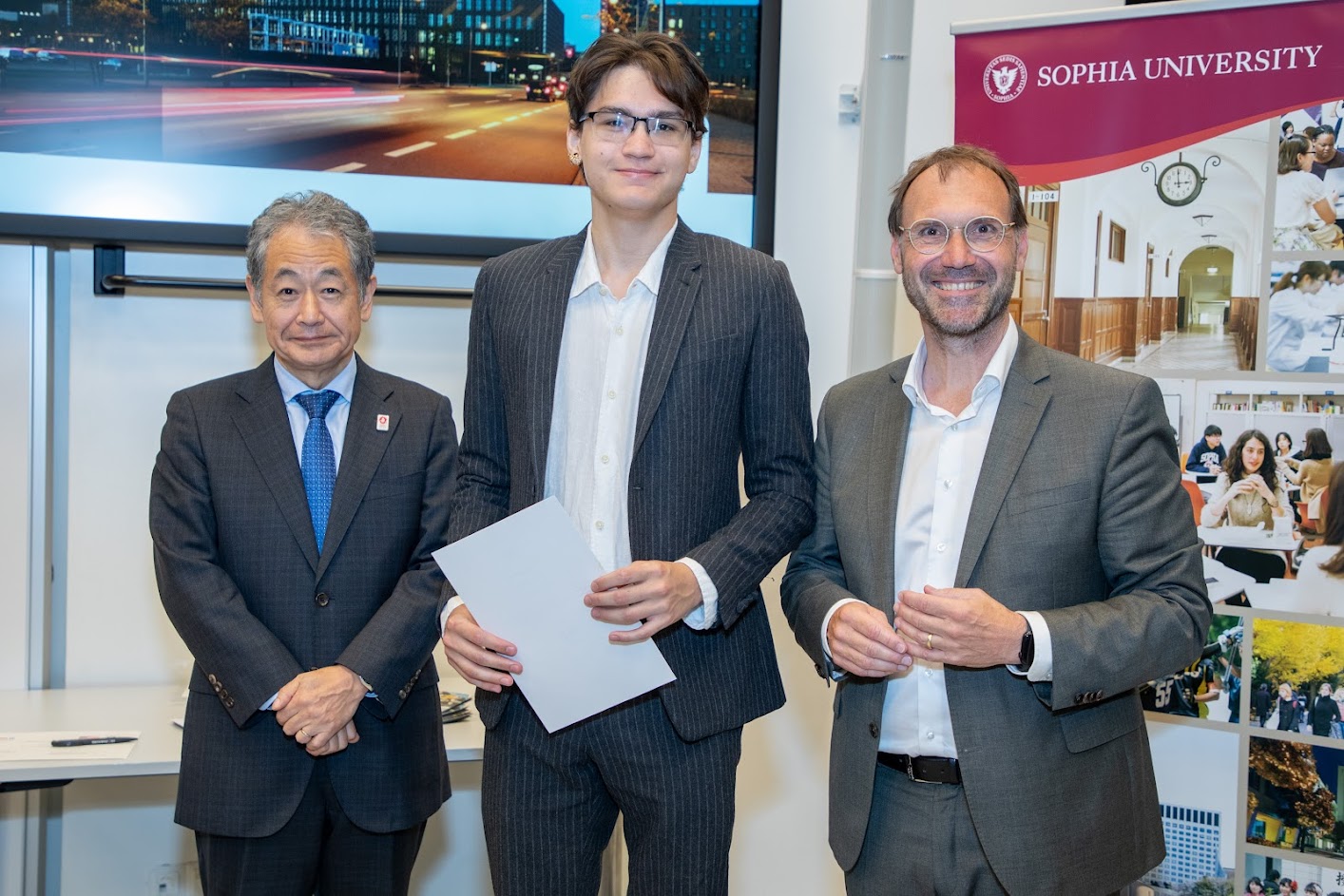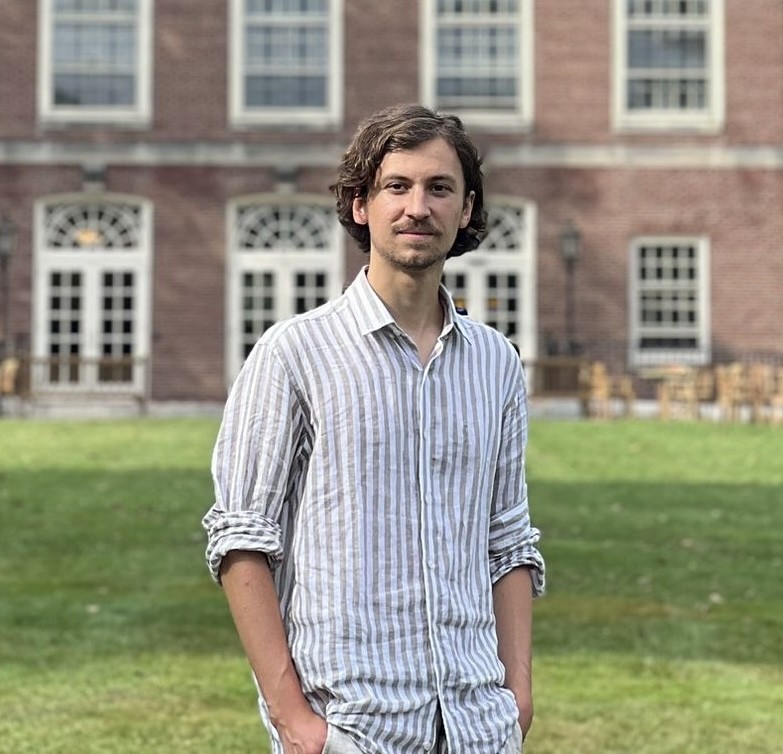In the world of Academia, progressing from a Master’s degree to a prestigious PhD programme is a path paved with challenges. Securing admission to an Ivy League university, where less than 5% of applicants are accepted, is a tremendous achievement for both the student and the faculty. Such admissions reflect not only the hard work of the students but also the faculty’s ability to produce top-notch research and education.
Pavel Stupatskii and Szymon Kopyta, both recent graduates from the Master in Quantitative Economics and Finance (MQEF) programme at the University of Luxembourg, managed to be admitted at two of the most prestigious universities. Pavel got accepted into the doctoral programme in economics at the University of Pennsylvania (UPenn) and Szymon was accepted into Columbia University. Both universities belong to the Ivy League and their economics departments and business schools are ranked among the top 10 in the world.
We spoke with Pavel and Szymon about why they chose to study in Luxembourg, their experiences in the MQEF to understand the key factors that enabled their success in getting to the Ivy League.
First of all, congratulations on your acceptance to such prestigious PhD programmes. Thinking back, why did each of you choose to study Master in Quantitative Economics and Finance in Luxembourg ?
Pavel: Thank you. Since my Bachelor’s I have been taking courses in quantitative subjects and almost half of my elective courses were in math-related subjects and formally inclined courses in economics and econometrics. The MQEF programme was very attractive to me because it is a research-focused Master, rather than an exclusively industry-oriented programme. It empowers you to then apply to PhD programmes and continue your academic career elsewhere. For those who want to pursue an academic career/do research, MQEF is a perfect choice here in Luxembourg and in this part of the world in general. After all, there are not that many master’s programs here in Luxembourg to choose from. It’s quantitative and all about research. Additionally, for those who prefer the industry, it offers excellent placements in financial corporations and other sectors. So if you are not particularly drawn to academic jobs, it still is a perfect opportunity because the industry needs people who can handle numbers well.
Szymon: Thank you. I was studying IT and econometrics in Poznan, Poland, my home city, and the Dean of my department, Professor Malaga, recommended this programme to me. He mentioned that it was an excellent programme focused on an academic career and at a very high level comparable to the best places in Europe. At that point, I already knew I wanted to pursue a PhD in economics, so I followed his recommendation and got admitted.

Pavel Stupatskii, in the middle, was accepted into the doctoral programme at the University of Pennsylvania (UPenn)
How do you feel the MQEF programme prepared you for a PhD at an Ivy League university?
Pavel: It’s a one-year programme, so we started with the math camp of one month that covers all the important basics for future quantitative courses like statistics, advanced calculus, and dynamic optimization. We then moved on to core courses macroeconomics, microeconomics, and econometrics. There was a very good advanced finance course by Professor Roberto Steri mostly on asset pricing, but also covering relevant topics such as corporate finance. We also had elective courses allowing us to specialize in areas like urban economics or , my favorite, Financial stability by Christos Koulovatianos, my thesis supervisor. The programme is intense because they have to squeeze all the credits and courses into one year, but if you’re brave enough, you can acquire great education in only one year, rather than two.
Szymon: It did a lot. Fundamentally, in all economics programmes, you have three core subjects microeconomics, macroeconomics, and econometrics which form the basis of all research. PhD programmes teach these subjects in the first year, so students have this foundation to build upon. Our Master’s programme here works the same way. They teach the same subjects using more or less the same books as in the top US programmes. Additionally, there is a math camp before the start of the programme which is typical for US programmes. The books used for the math course are the same as those in top US programmes, so you really learn mathematics thoroughly. And then you go into the programme, you learn what US students would learn, and so you’re in an excellent position to go there. Partly it’s going to be revision and partly it’s going to be something new, of course. But since it won’t be the first time you see these things, it will be much easier to digest.
How did the faculty support you in your application to the PhD?
Pavel: The faculty guided me through the whole process of applications and then through getting all the documents like the visa and so on. The programme and the professors want us as their students to succeed. The Department of Finance, specifically, was very supportive with advice, handling some bureaucratic aspects of the applications, and providing recommendation letters.
Szymon: Some of the professors, especially Professor Christos Koulovatianos, had experience promoting and sending students to top programmes. So when I talked to them, they explained the entire process from A to Z because it’s quite peculiar and long. They also wrote me recommendation letters. I already had good grades and needed to do well on the GRE exam. The faculty guided me through every step, and when I started having interviews, they gave me some tips like showing you are a nice person and demonstrating that you would be a good addition to their faculty.

Szymon KOPYTA was accepted into the doctoral programme at the Columbia University
What was the best advice they gave you?
Pavel: The best advice was to apply as early as possible. Sending documents early makes the process smoother for everyone, from the Ministry of Foreign Affairs to the University and faculty.
Szymon: The best advice was for the interviews. They asked about my thoughts on research, and Professor Christos mentioned the concept of the production possibility frontier in economics. He explained that in research, there’s a trade-off between the quality of the idea and the quality of execution. Top researchers break this relationship. I used this concept in my interviews, and it resonated well with the interviewers, showing them I understood what the research was.
Reflecting on your journey, what do you think were the key factors that enabled you to get admitted to the doctoral programme and how do you see your future in academia?
Pavel: I sent a lot of applications to the US and elsewhere in Europe to increase my chances. I prepared thoroughly for the GRE and took many quantitative courses during my Bachelor studies. Universities want people who can do numbers because all papers in economics nowadays have either empirics or a theory which require a lot of formal background. In my statement of purpose, I emphasized my desire for an academic career, which is crucial for PhD applications. As I mentioned in my application, I want to pursue an academic career. That is, I want to do science, publish papers, go to the job market, and get placed in a good university. First, I aim for an assistant professor position and then to go on a tenure track. It’s a very long-term plan. I cannot say for certain that I’ll feel the same in five years, but at least I have a direction to go.
Szymon: Maybe one of the key factors was my flexible and somewhat atypical background for an economist because my Bachelor’s was not in economics but IT and econometrics, so more analytical. It gave me an edge in programming, which is also important in economics. I also had very good grades, and as we joke with my fiancée, the way the education system is structured, it’s very much made towards people like me [laughs]. In the future, I hope to secure a good position at a university and produce excellent research.
What advice would you give to current or future students in the MQEF programme who want to follow your path?
Pavel: Well, it’s simple advice, I guess. Be hardworking. Do your assignments. The whole programme is constructed by very competent people, so just follow what they want you to do. Do your homework thoroughly, learn math, and be conscious about your studies. Be smart. Then, be ready to work with numbers. Don’t think it’s not for you just because you didn’t enjoy math in high school. Some people transition from arts to sciences and do very well. Give it a try and see for yourself. Also, get a taste of research. Try some research assistantships and write a more academic thesis. Find a professor whose research interests you and who is doing good work. Enjoy the process because you need to love what you are doing. A PhD is a five-year commitment, so it’s important to have fun with it, or at least not be miserable.
Szymon: Learn and study a lot. Study during the weekends too, that’s for sure. Try to persevere because the programme is a marathon. Do your best and admissions committees will decide if it’s enough.
Is there anything else you would like to share about the Master’s programme or your experience?
Pavel: Well, as I said, the faculty is very helpful. So if you have issues with your admissions, your documents, or anything, just reach out to the faculty or to the admissions office.
Szymon: One thing that stands out is how well the Master’s programme teaches and prepares students. The professors emphasize the quality of research over the quantity and the importance of publishing in top journals. They stress that a single publication in a top journal is far more valuable than multiple publications in mediocre journals. If you want to make a difference and be significant in economics or finance, you have to aim for the best. This process requires a lot of time and perseverance. The programme instils that quality is the most important, even if it means having just one significant publication. Publishing in economics can take a long time. For instance, some seminal publications took 15 years to publish. You have to be ready for this long-term commitment, but it’s the only way to truly make an impact in the field.
Thank you very much for these insights. All the best for this new step in your life.
